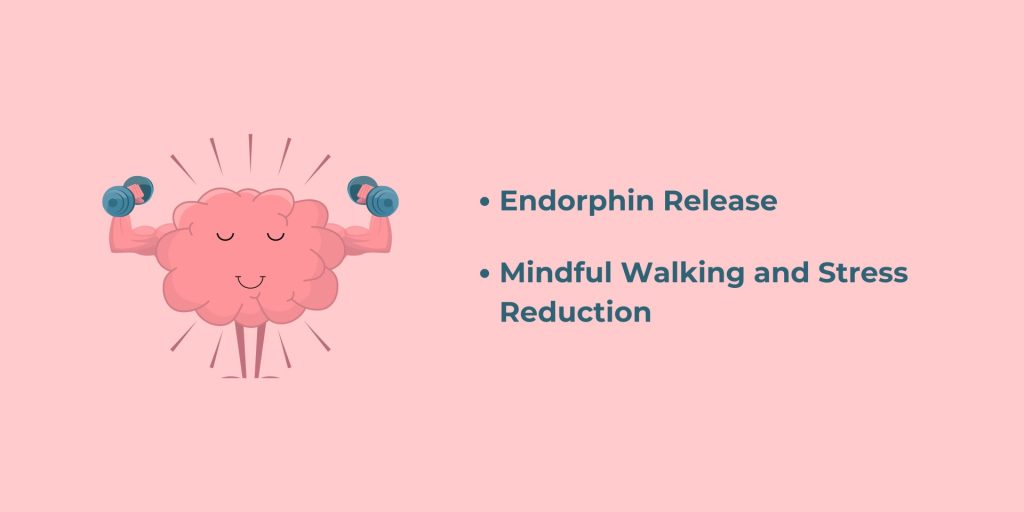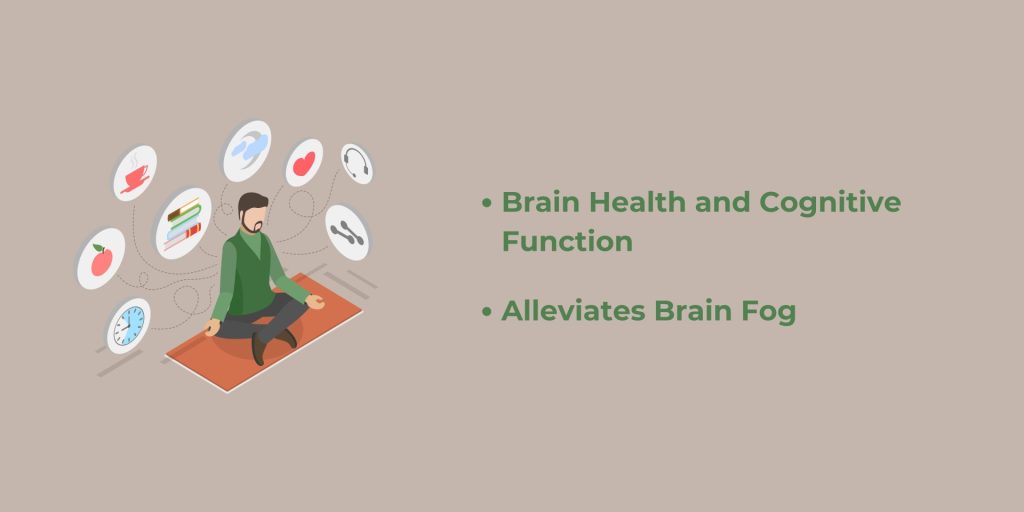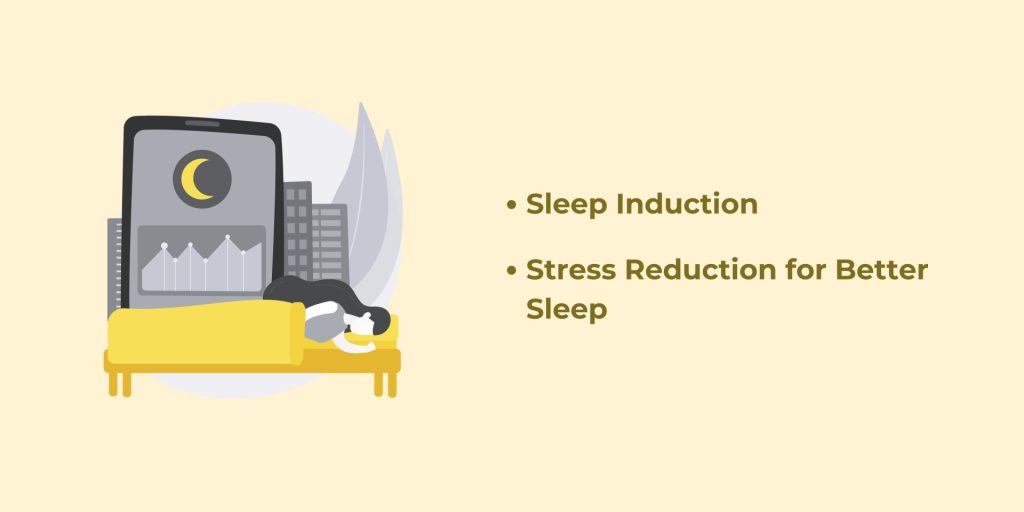Table of Contents
In the modern era of high-intensity workouts and complex fitness routines, the simplicity of walking often takes a back seat. Yet, beneath the unassuming cadence of each step lies a treasure trove of health benefits that extend far beyond physical fitness. Walking, a fundamental human activity, has the power to transform well-being on multiple fronts—physical, mental, and emotional. As we lace up our shoes and embark on the journey of a walk, let’s delve into the remarkable benefits that unfold with every stride.
Benefits of Walking
Cardiovascular Health

Heart Health and Aerobic Exercise:
Walking regularly is like a friendly workout for your heart, lowering the chances of heart issues and strokes. It keeps your heart in top shape, backed by science. Making it a daily habit is like giving your circulatory system a best friend. Create a simple fitness plan with doable daily step goals for instant well-being and a lifetime of heart health.
Blood Pressure Management:
Brisk walking is great for your heart and helps manage blood pressure. It’s rhythmic and boosts blood flow, making it a simple exercise to include in your daily routine. Apart from keeping blood pressure in check, it helps with weight and mood. Science backs the link between brisk walking and heart health. Plan your walks with achievable goals and intervals for the best impact on blood pressure.
Weight Management

Caloric Burn and Metabolism Boost:
Although it may not generate the same sweat-inducing intensity as high-intensity workouts, walking remains a powerful asset for weight management. It aids in calorie burning, boosts metabolism, and assists individuals in reaching and sustaining a healthy weight.
Sustainable Fitness:
Walking’s low impact and accessibility make it a sustainable form of exercise. It’s a fitness approach that individuals of all ages and fitness levels can adopt without the need for specialized equipment or intense training sessions.
Mental Well-Being

Endorphin Release:
The sustainable nature of walking, with its low impact and accessibility, makes it an exercise suitable for individuals of all ages and fitness levels. This fitness approach doesn’t require specialized equipment or intense training sessions, offering a universally accessible option.
Mindful Walking and Stress Reduction:
Taking a calm walk, fully in the moment, is a great way to reduce stress. The rhythmic movement and connection with nature during a walk create a peaceful environment for deep relaxation.
Joint and Bone Health

Low-Impact Advantage:
Unlike high-impact exercises that can strain joints, walking is a low-impact activity. It provides an excellent option for those with joint conditions or individuals seeking a gentler form of exercise that supports joint health.
Bone Density Maintenance:
Weight-bearing activities, such as walking, contribute to maintaining and improving bone density. This is particularly crucial for individuals looking to prevent osteoporosis and support overall skeletal health.
Boosts Immune Function

Enhanced Immune Response:
Moderate physical activity, including walking, has been associated with enhanced immune function. Regular walkers often experience fewer sick days, showcasing the positive impact of walking on the body’s ability to defend against infections.
Lymphatic System Activation:
Walking stimulates the lymphatic system, contributing to the circulation of immune cells throughout the body. This can enhance the body’s ability to mount a robust immune response.
Digestive Health

Stimulates Digestion:
Walking aids in stimulating the digestive system. A post-meal walk, for example, can help promote digestion and alleviate feelings of bloating or discomfort.
Blood Sugar Regulation:
For individuals managing or at risk of type 2 diabetes, walking after meals has been shown to help regulate blood sugar levels. This simple practice contributes to improved overall metabolic health.
Cognitive Benefits

Brain Health and Cognitive Function:
Walking has a positive impact on cognitive function. It has been linked to improved memory, creativity, and problem-solving abilities, contributing to overall brain health.
Alleviates Brain Fog:
The rhythmic and repetitive nature of walking can help alleviate feelings of brain fog or mental fatigue. It provides individuals with a mental reset, enhancing focus and clarity.
Improved Sleep Quality

Sleep Induction:
Regular physical activity, such as walking, has been associated with improved sleep quality. Moderate exercise can be a natural sleep inducer, contributing to restful nights.
Stress Reduction for Better Sleep:
The stress-reducing benefits of walking play a significant role in promoting better sleep. Reduced stress levels contribute to an environment conducive to relaxation and sleep.
Social Connection

Walking Groups and Socialization:
Walking has the inherent advantage of being a social activity. Joining walking groups or walking with friends fosters social connections, turning a solitary exercise into a shared and enjoyable experience.
Community Engagement:
Walking in local parks or neighborhoods allows individuals to connect with their communities. It promotes a sense of belonging and can be a catalyst for community engagement.
In the world of wellness, walking is like a soothing tune that touches every part of us. Each step plays a role in keeping us physically strong, mentally clear, and emotionally well. When we put on our shoes and start walking, we’re embracing a timeless exercise that leads to a healthier tomorrow. This journey doesn’t require a complicated plan or fancy gadgets—just a willingness to take each step and enjoy the natural benefits of walking, a step toward a satisfying life.
Also Read: Unlocking Flexibility: The 10 Profound Benefits of Stretching
Quick Answers
Can walking help with weight loss?
Yes, walking plays a crucial role in weight management. Combining a balanced diet with regular walking can contribute to effective and sustainable weight loss.
Are there mental health benefits to walking?
Certainly. Walking has been linked to reduced stress, improved mood, and better mental clarity. It’s a simple yet powerful practice for enhancing mental well-being.
Is outdoor walking more beneficial than indoor walking?
Both have their benefits. Outdoor walking exposes you to nature, sunlight, and fresh air, while indoor walking offers convenience and protection from weather conditions.






